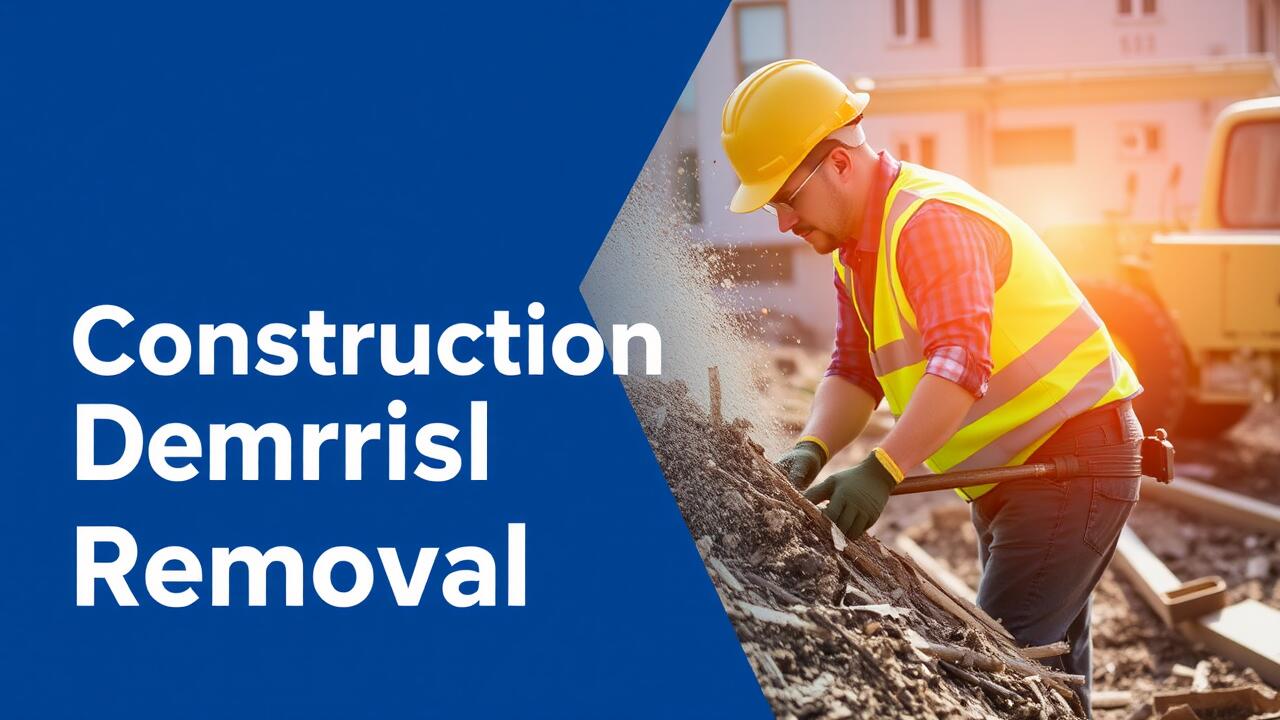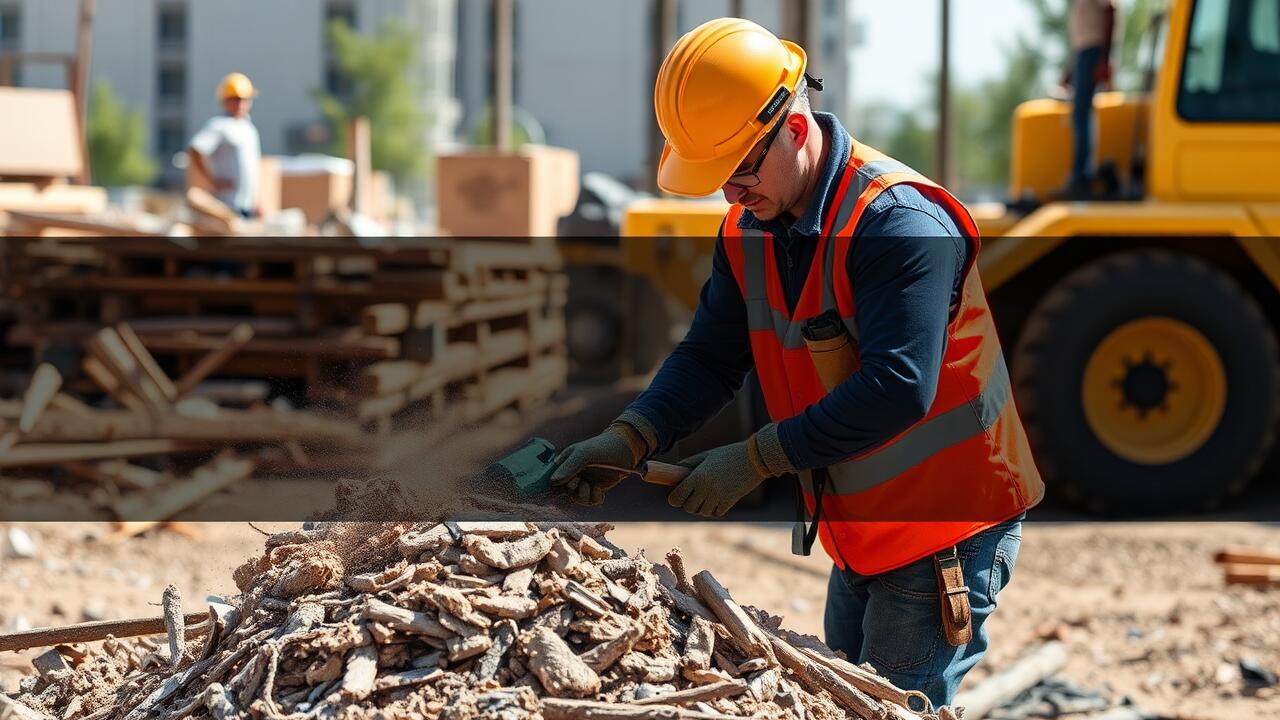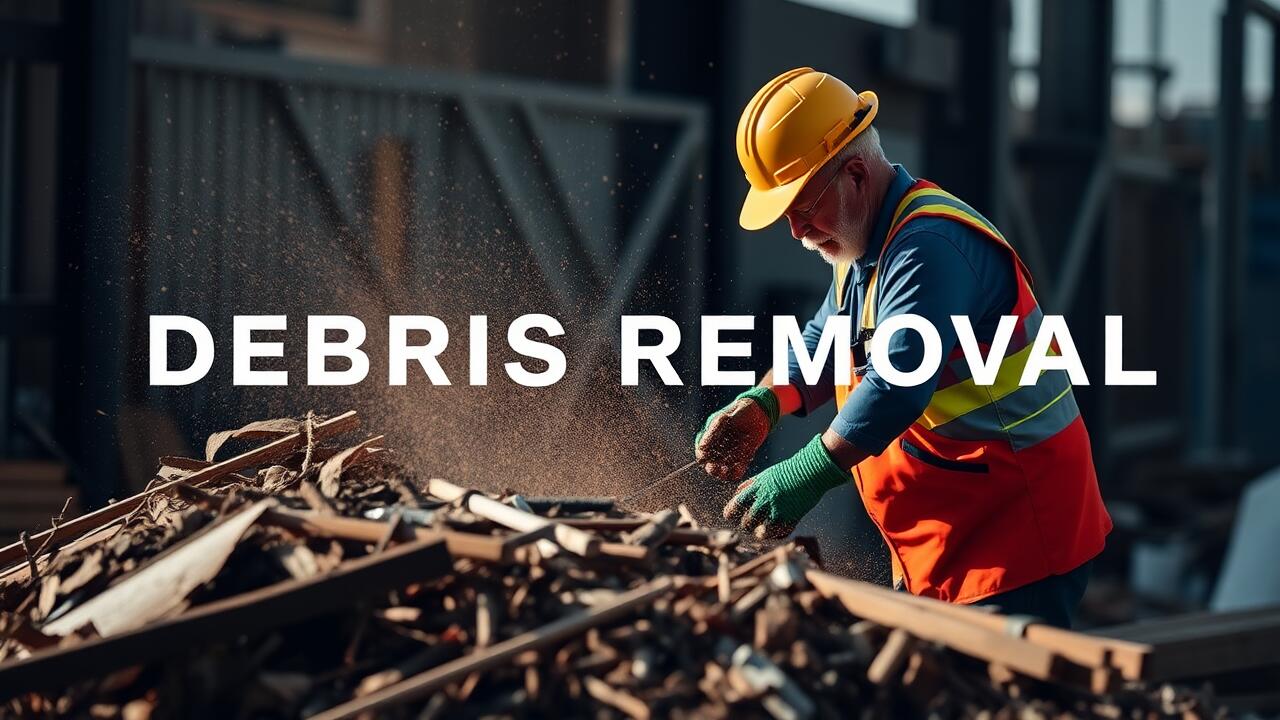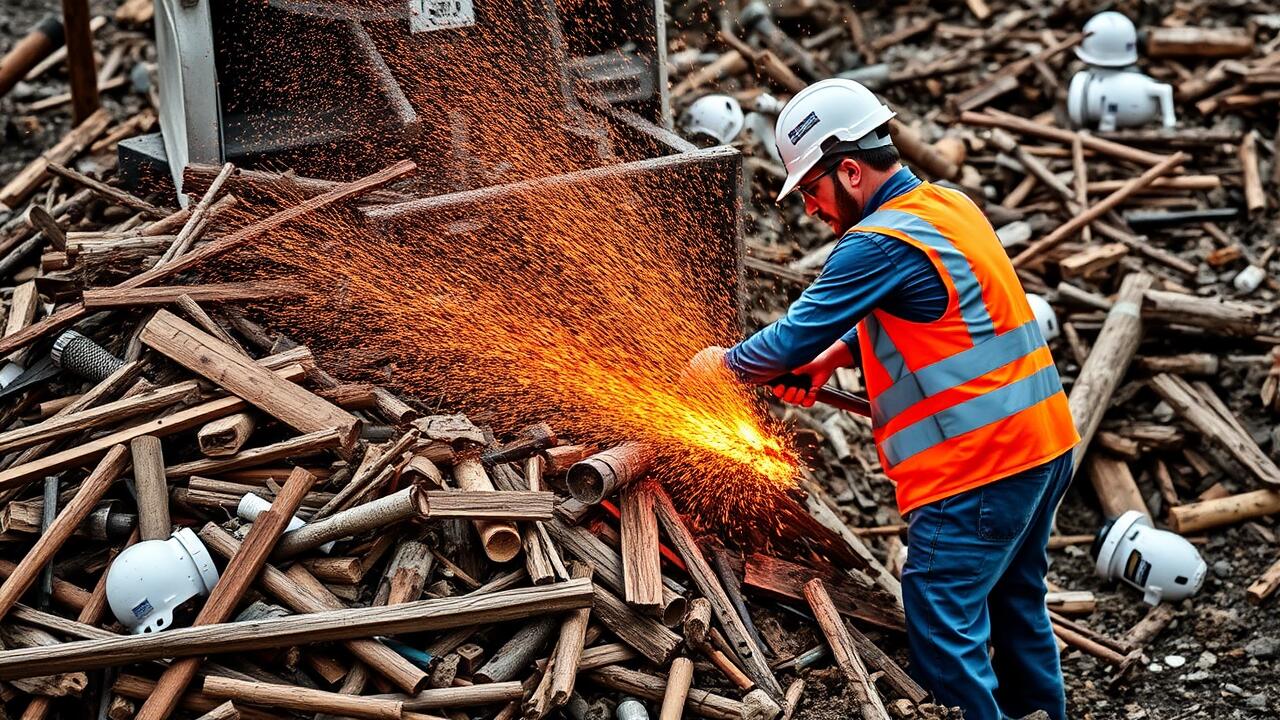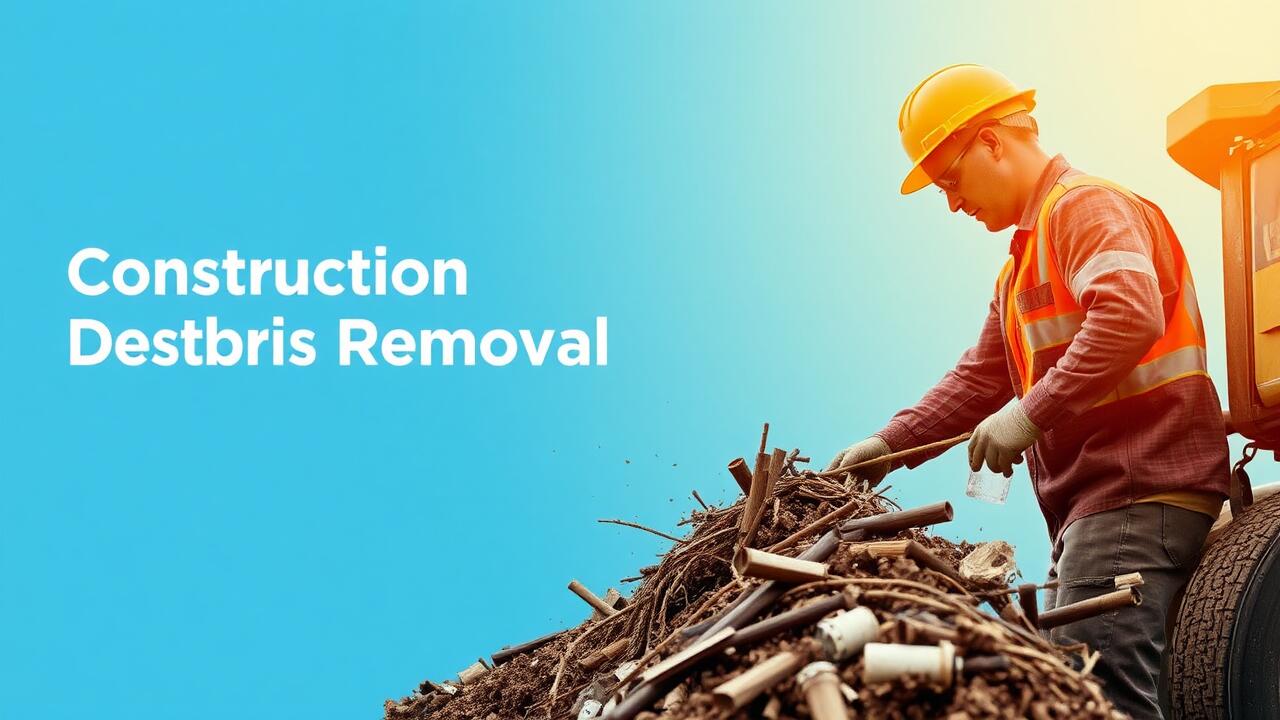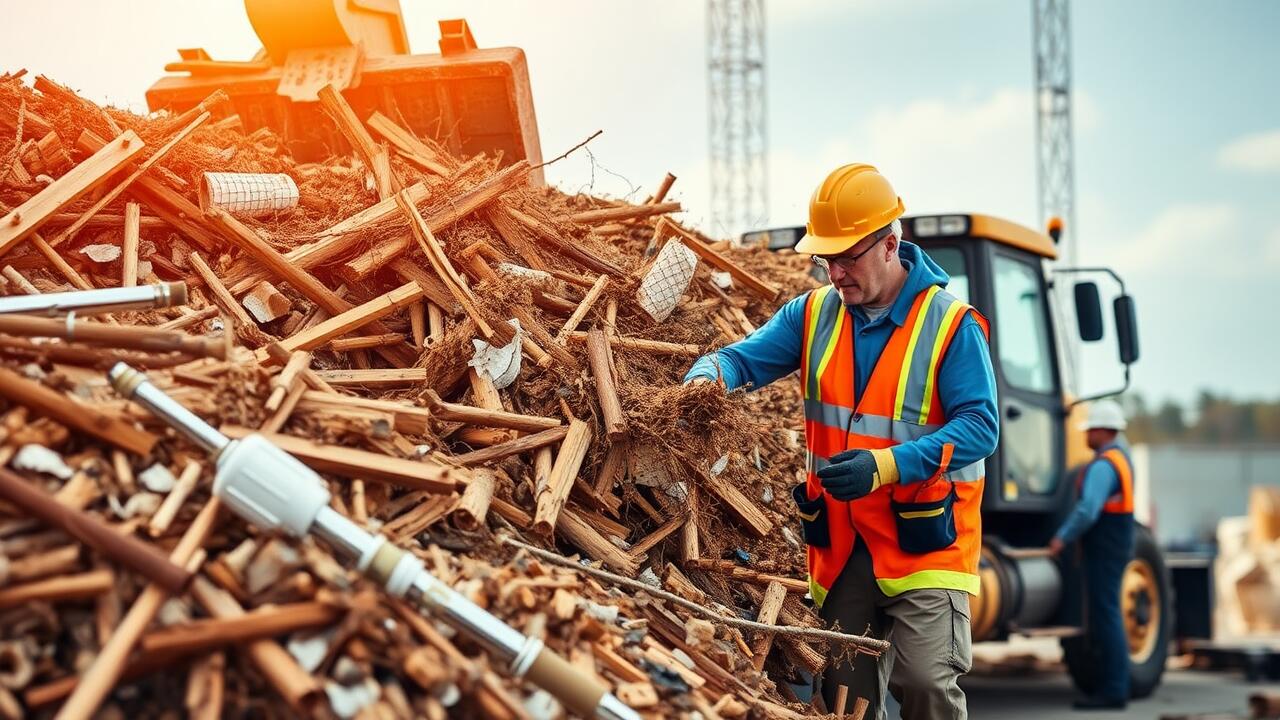
Innovations in Drywall Materials
Recent advances in drywall materials are paving the way for sustainable construction practices. Manufacturers are developing products that not only enhance performance but also reduce environmental impact. Innovations include gypsum boards that incorporate recycled materials and lightweight options that minimize transportation emissions. These new formulations offer similar durability and fire resistance while addressing the challenges of waste management.
The integration of smart technology into drywall also marks a significant shift in the industry. Some drywall options now come with built-in sensors that monitor humidity and temperature, proving beneficial for creating healthier indoor environments. The focus on reducing waste extends beyond installation to encompass effective strategies for Construction Debris Removal in Encanto, Phoenix. As these innovations gain traction, they contribute to more efficient construction processes and a reduction in overall waste production.
Eco-Friendly Alternatives to Traditional Drywall
Innovative alternatives to traditional drywall aim to reduce environmental impact while maintaining structural integrity. Materials such as recycled paperboard, fiber cement, and gypsum boards made from post-consumer waste present a sustainable option without sacrificing performance. These eco-friendly products not only help decrease the carbon footprint associated with production but also contribute to a healthier indoor environment.
In urban areas like Encanto, Phoenix, construction projects have increasingly adopted these alternatives, necessitating effective construction debris removal strategies. By embracing green materials, contractors can lessen the amount of conventional drywall waste generated on-site. Implementing sustainable disposal practices becomes essential to maximize the benefits of using these eco-friendly options, making efficient construction debris removal in Encanto, Phoenix, a priority for responsible building practices.
Regulations and Standards for Drywall Disposal
Regulations governing the disposal of drywall are critical for ensuring that construction waste is managed properly. Many municipalities have implemented specific guidelines that dictate how drywall should be disposed of, often requiring that it be separated from other types of construction debris. This separation facilitates recycling and promotes more responsible waste management practices. Contractors must remain aware of local regulations as non-compliance can result in fines and other penalties.
In areas like Laveen, Phoenix, the approach to construction debris removal can significantly impact the environment. Local regulations may require contractors to collaborate with licensed waste management companies for proper disposal. Utilizing services for Construction Debris Removal in Laveen, Phoenix helps to streamline the process, ensuring that drywall is handled according to legal standards. This is not only beneficial for compliance but also supports recycling initiatives that can minimize landfill contributions.
Legal Requirements for Construction Waste Management
Legal requirements for construction waste management are essential for ensuring that building sites operate within the bounds of environmental regulations. Many jurisdictions, including Encanto, Phoenix, have established specific protocols for handling and disposing of materials such as drywall. These regulations often mandate the segregation of construction debris to enhance recycling efforts and minimize landfill contributions. Failure to comply with these standards can lead to fines and project delays, which can ultimately affect a contractor's bottom line.
Implementing effective waste management practices not only adheres to legal guidelines but also promotes sustainability within the construction industry. Contractors must familiarize themselves with local laws regarding construction debris removal in Encanto, Phoenix. Understanding these legal requirements helps contractors develop efficient waste management plans that prioritize recycling and proper disposal methods. Utilizing available resources and collaborating with local waste management services can improve compliance and reduce the overall environmental impact of construction projects.
The Role of Contractors in Waste Minimization
Contractors play a crucial role in minimizing waste during the construction process, as their decisions directly impact the amount of debris generated. By carefully planning projects, selecting materials that reduce waste, and employing techniques that maximize efficiency, contractors can significantly decrease the volume of waste produced on-site. They can also ensure that labor practices align with sustainability protocols, which influence how resources are utilized and, subsequently, how much discarded material is left once a project is completed.
Another important aspect of waste reduction is the effective management of construction debris. Contractors can collaborate with specialized services for Construction Debris Removal in Encanto, Phoenix, ensuring that materials are disposed of responsibly. Utilizing local recycling facilities for drywall and other materials not only complies with regulations but also contributes to a more sustainable approach to construction. By creating systematic procedures for sorting and recycling debris, contractors can enhance their reputation while positively influencing the environment.
How Contractors Can Implement Waste Reduction Techniques
Contractors can adopt efficient project planning and materials management to minimize waste on-site. By accurately estimating the amount of drywall needed, they can significantly reduce excess materials that often end up as scrap. Careful coordination with suppliers ensures that deliveries align with project timelines, decreasing the likelihood of damage and waste. Additionally, utilizing off-cuts in other areas of the project allows for creative solutions that maximize material usage.
Training team members on proper handling techniques also helps in reducing waste. When workers are educated about the importance of careful cutting and installation methods, they are less likely to create unnecessary debris. Implementing a system for sorting and recycling waste materials during the construction process can further enhance waste management efforts. For those looking for assistance, services like Construction Debris Removal in Encanto, Phoenix, can provide valuable resources for effective disposal and recycling of drywall waste.
FAQS
What is drywall and what role does it play in construction waste?
Drywall, also known as gypsum board, is a key building material used in the construction of walls and ceilings. Its production and disposal can contribute significantly to construction waste if not managed properly.
What are some eco-friendly alternatives to traditional drywall?
Eco-friendly alternatives include products made from recycled materials, such as reclaimed gypsum or plant-based composites, which reduce environmental impact and enhance sustainability in construction.
What regulations govern the disposal of drywall in construction?
Regulations regarding drywall disposal vary by location but typically involve guidelines on how to properly dispose of construction waste, including separate collection and recycling mandates to minimize landfill contributions.
How can contractors minimize drywall waste on construction sites?
Contractors can minimize drywall waste by implementing waste reduction techniques, such as careful planning and measurement, recycling scrap materials, and using advanced installation methods that reduce off-cuts.
Why is it important to manage construction waste, particularly drywall?
Proper management of construction waste, including drywall, is crucial for reducing environmental impact, conserving resources, and complying with regulations aimed at promoting sustainability in the construction industry.
